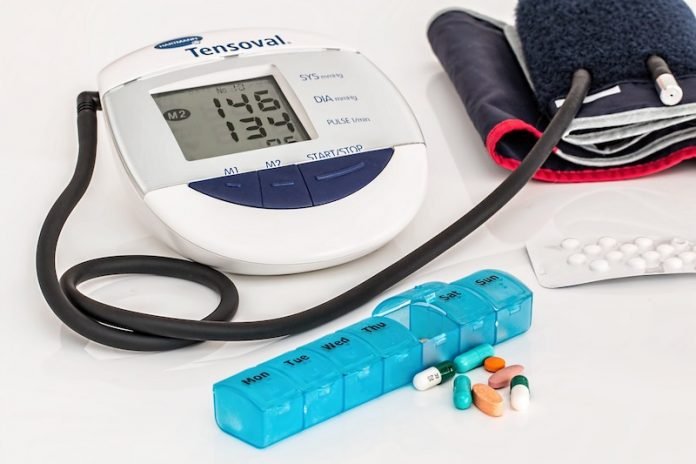
In a new study, researchers found that blood pressure self-monitoring is an effective way to help people with high blood pressure to stick with an exercise program.
The fining shows that blood pressure self-monitoring can and should be used as a behavioral strategy to help keep patients with hypertension engaged in an aerobic exercise training program.
The research was conducted by a team from the University of Connecticut in collaboration with Hartford Hospital.
High blood pressure is known to be a leading risk factor for heart disease. It is the most common and costly, but modifiable, chronic condition in the U.S. and world.
Regular aerobic exercise lowers blood pressure on average to the order of five to seven points. And these reductions are even greater for those with higher baseline blood pressure.
Because high blood pressure causes no outward symptoms, patients often become frustrated when they don’t know or understand what their blood pressure values are and don’t see results from lifestyle modifications.
These frustrations can make it hard to do exercise regularly.
In the new study, the team tested their long-held notion that encouraging patients to monitor their own blood pressure, especially before and after exercising.
They examined 24 participants with high blood pressure and engaged them in a 12-week supervised aerobic exercise training program.
They found that self-monitoring blood pressure could show that exercise had an immediate, positive effect on their blood pressure and could help patients adhere to an exercise training program.
The results showed that after one single bout of exercise, blood pressure drops about 5-7 points. This reduction persists for up to 22 hours after the exercise.
These blood pressure reductions serve as an objective biomarker that people can measure and see with their own eyes.
This is really powerful because it enables patients to demonstrate to themselves that their blood pressure is lower on days they exercise than on days that they do not.
The researchers say that blood pressure self-monitoring could have lifestyle modification implications well beyond treating high blood pressure.
One author of the study is Linda Pescatello, a distinguished professor in UConn’s Department of Kinesiology.
The study is published in the Journal of Hypertension.
Copyright © 2019 Knowridge Science Report. All rights reserved.



